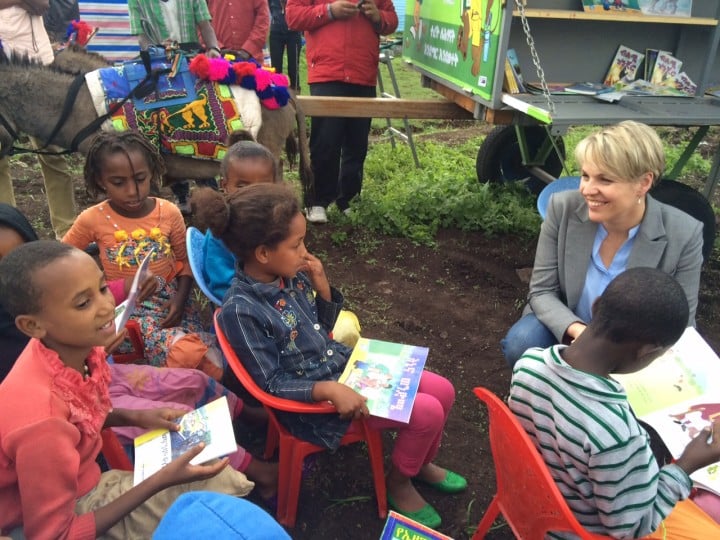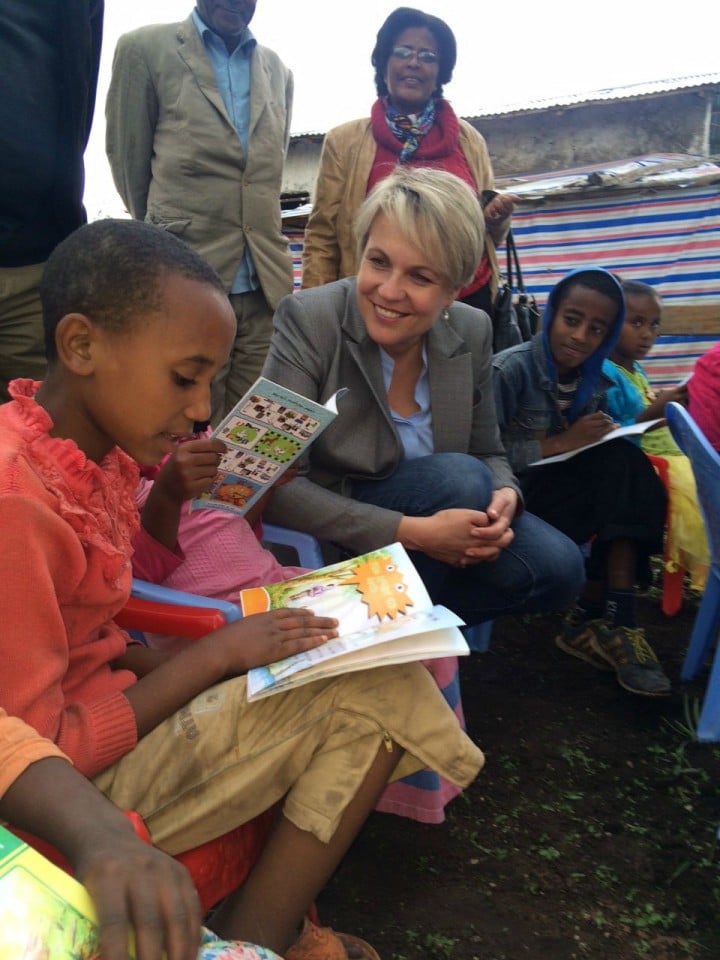
It’s rainy season in Addis Ababa, Ethiopia.
Our truck ambles over a rocky dirt road that’s turned to mud in places. It’s about 5 o’clock in the afternoon. Like clockwork at this time of year, storm clouds roll across the plains stretched out around us. We’re on our way to Feche, a small village on the outskirts of the city.
As we approach, children look at our strange convoy, wide-eyed. There are donkeys and chickens criss-crossing the streets. There is laughter. Girls and boys play. Parents share a joke. But there was no escaping the grinding poverty in which they lived. In Ethiopia, about one in every three people live on less than $US1.25 a day.

I was visiting Feche to see a project run by aid organisation Plan, and funded by the Australian Government. By the vegetable garden, as we arrive, there were rows of children sitting reading books. Eager to share their favourite stories, they answer questions from their teacher and me. The books they are reading arrived by the ‘donkey library’ – a mobile library cart pulled, as the name suggests, by two donkeys. Most of these children don’t own a single book of their own; these are the only books they see, and they can’t wait for the library to arrive.





























































































